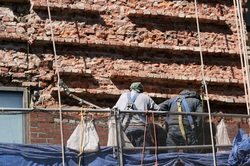Now before the festival of the Passover, Jesus knew that his hour had come to depart from this world and go to the Father. Having loved his own who were in the world, he loved them to the end. The devil had already put it into the heart of Judas son of Simon Iscariot to betray him. And during supper Jesus, knowing that the Father had given all things into his hands, and that he had come from God and was going to God, got up from the table, took off his outer robe, and tied a towel around himself. Then he poured water into a basin and began to wash the disciples’ feet and to wipe them with the towel that was tied around him. He came to Simon Peter, who said to him, ‘Lord, are you going to wash my feet?’ Jesus answered, ‘You do not know now what I am doing, but later you will understand.’ Peter said to him, ‘You will never wash my feet.’ Jesus answered, ‘Unless I wash you, you have no share with me.’ Simon Peter said to him, ‘Lord, not my feet only but also my hands and my head!’ Jesus said to him, ‘One who has bathed does not need to wash, except for the feet, but is entirely clean. And you are clean, though not all of you.’ For he knew who was to betray him; for this reason he said, ‘Not all of you are clean.’ After he had washed their feet, had put on his robe, and had returned to the table, he said to them, ‘Do you know what I have done to you? You call me Teacher and Lord—and you are right, for that is what I am. So if I, your Lord and Teacher, have washed your feet, you also ought to wash one anothers' feet. For I have set you an example, that you also should do as I have done to you.  People that go unnoticed People that go unnoticed As research for her book Nickeled and Dimed, journalist Barbara Ehrenreich "left behind her middle class life as a journalist except for $1000 in start-up funds, a car and her laptop computer to try to sustain herself as a low-skilled worker for a month at a time. In 1999 and 2000, Ehrenreich worked as a waitress in Key West, Fla., as a cleaning woman and a nursing home aide in Portland, Maine, and in a Wal-Mart in Minneapolis, Minn. During the application process, she faced routine drug tests and spurious "personality tests"; once on the job, she endured constant surveillance and numbing harangues over infractions like serving a second roll and butter. Beset by transportation costs and high rents, she learned the tricks of the trade from her co-workers, some of whom sleep in their cars, and many of whom work when they're vexed by arthritis, back pain or worse, yet still manage small gestures of kindness." As I read Jesus' demonstration of service, I'm wondering about the servant whose job it was to wash their feet that evening. Where was she? Had Jesus given her the night off or was she off to the side watching Jesus do her job? Were the disciples also glancing up at with a sort of disdain that she had clearly taken too long to get to their feet that Jesus now was doing it. How inappropriate? In my mind, she could be the beautiful Latina woman, whose name I confess to have forgotten, who cares for the building in which I live. Or she could be one of the everyday waitresses at the diner I frequent, whose name is Terry. Or if the servant that evening was a man, he could be one of the nameless men who clean the inside of my car after I take it through the car wash. Or the young man at the gas station the other day who cleaned my windshield for me. I made sure to say thank you but I didn't think to ask his name.  Things that go unnoticed Things that go unnoticed I try to imagine Jesus, a Palestinian Jewish man in his early 30's caring for my building, or taking me and my friends' order for lunch on Thursday, or washing my windows while he pumps my gas. He took his robe off and took the role of a servant. And although we can say we don't have official servants anymore, let's be honest - of course we do. We just don't call them that. We pay below a living wage to a certain population to do tasks that we either don't want to do or don't have time to do or would simply make our lives easier. And I'm passing no judgment here, I'm simply walking into the text. The scene shows a group of people at a table depending on others to serve them at the table. Others will prepare the meal, serve the meal, wash their feet, clean up from the meal. Jesus chose to take one of those tasks from a servant. He upset the class system. And everyone in the room was provoked to evaluate their status in the room. And then when he was finished, he put his robe back on and took his seat at the table. Resetting the class system. And he asked them, "Do you know what I have done to you?" Before we go onto the final statements in the text, answer that question, "What does this do to us?" When we read this story and imagine Jesus upsetting the class system like this, What does it do to us? Yes, it teaches that I ought to serve one another. That I ought to figure out what washing feet means in my context. But on a very simple level, I believe Jesus has opened my eyes to the others in the room who are often nameless and perhaps even faceless... those who do not earn a livable wage and yet work two jobs.
0 Comments
Leave a Reply. |
Search this blog for a specific text or story:
I am grateful for
|

This work is licensed under a Creative Commons Attribution-NonCommercial-ShareAlike 3.0 Unported License.
